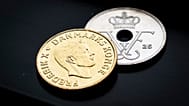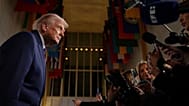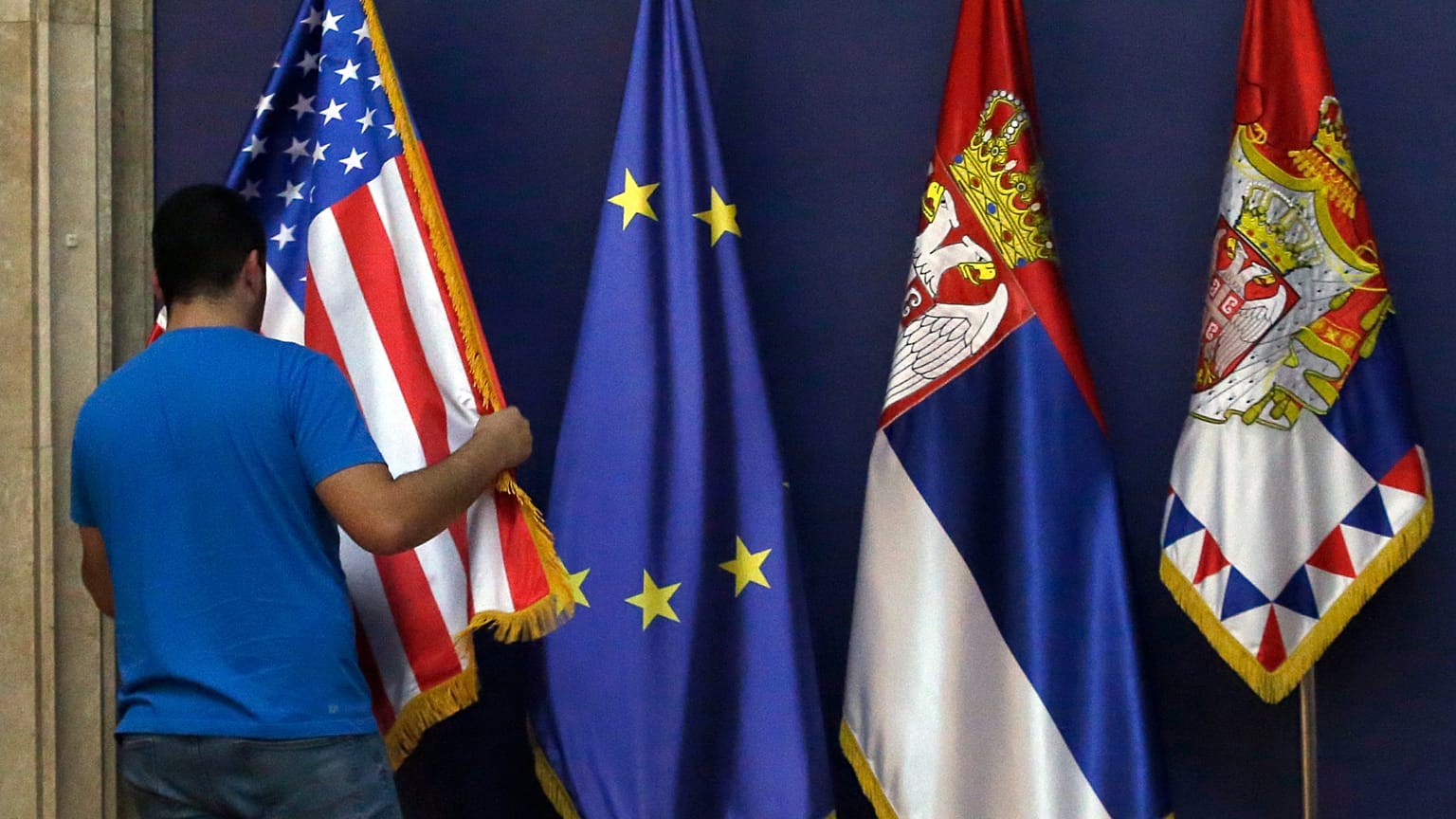Washington has historically supported the enlargement process on the basis that more member states joining the EU means more business and influence. Not anymore. Donald Trump couldn’t care less, experts tell Euronews.
As EU enlargement is back on the political agenda, the United States has become a silent bystander of a process that could bring more democracy and prosperity to millions of people in the Western Balkans and beyond.
While past US administrations have vividly supported the attempts to bring more countries into the European Union, US President Donald Trump has remained ominously silent.
There is no public policy statement specifically outlining his position on each individual EU-candidate country’s accession or on the enlargement process in general.
Responding to Euronews' request for comment, a State Department spokesperson emailed one sentence: “The United States believes EU accession is a decision for candidate countries and the existing member states.”
In other words, Washington has no opinion.
“Europe is not much on Trump’s mind outside the trade context,” Nicholas Lokker from the Center for a New American Security, a Washington-based bipartisan think tank, told Euronews.
“And he doesn’t care much about democracy promotion in Europe or elsewhere in the world.”
This is a clear break with US foreign policy traditions.
During decades of the Cold War, Republican and Democratic administrations alike viewed America as a prime European power that worked unambiguously to achieve a democratic Europe “whole and free” – from the Marshall Plan to NATO, from helping to secure German reunification to helping to stabilise the Western Balkans after the wars in the 1990s.
When it comes to the EU, US support was seen in Washington as a way to increase European peace, security and prosperity, which in turn would benefit the US economically and strategically.
And more EU members would mean a more stable and integrated Europe, reducing the need for a large US military presence on the continent and increasing business opportunities for the US through expanded trade and investment in a more prosperous European single market.
Hence Washington’s praise of the EU decision to open accession negotiations with Ukraine and Moldova in December 2023 as a “powerful affirmation of the EU candidates’ and prospective candidates’ European future”.
And even more: “This is a historic moment for Europe and for the transatlantic partnership,” declared Joe Biden’s State Department at the time.
'For Trump, Europe is not a great power'
Such a strong statement from the US government seems elusive today.
Whether or not EU hopefuls from Montenegro to Moldova can realise their full democratic and economic potential inside the European Union is a non-issue for the Trump administration.
“His hostility toward Europe is such that he sees anything that makes Europe stronger as something that makes the United States weaker,” James Bindenagel, director of the Center for International Security and Governance at the University of Bonn and a former US ambassador, told Euronews.
“Trump would rather be a spoiler than a supporter of further European integration,” he added.
Indeed, Trump has often viewed the European Union as more of an economic competitor than a partner.
His broader foreign-policy orientation underlines “America First,” which pursues nationalist objectives while prioritising bilateral relations over multinational commitments of the kind required by EU enlargement.
For Trump, geopolitics is a competition among great powers like the US, Russia and China – but not Europe, said Lokker.
“He thinks the world should be divided in spheres of influence. And following this logic, the Balkans should belong to Russia’s sphere.”
“Trump is very much interested in authoritarianism. In Europe, he likes ‘strongmen’ like Orban or (Slovak PM Robert) Fico,” Bindenagel said.
Trump accepts the argument that EU enlargement strengthens Europe and weakens Russian President Vladimir Putin, he added. “But here’s the point: Trump doesn’t want to weaken Putin.”
The only place where EU enlargement got somewhat special attention from the Trump administration is Ukraine.
Trump and Ukraine's NATO membership
The candidate country against which Russia unleashed a full-scale war more than three years ago is still fighting for its very survival as an independent country.
While he has acknowledged Ukraine’s strategic importance and its European orientation, Trump has not publicly laid out a position specifically stating whether he supports or opposes Ukraine’s membership in the EU.
Still, a report by Bloomberg published in August suggested President Trump raised the issue of Ukraine's membership with Hungarian Prime Minister Viktor Orbán and asked about the reason behind his opposition to Kyiv's candidacy.
What is clear from his statements is that he is against Ukraine joining NATO.
“You (Ukraine) can forget about NATO,” Trump said at a cabinet meeting in February. “I think that’s probably the reason the whole thing started.”
With the doors to NATO shut, Ukrainians could see joining the EU as an important “consolation prize” still relevant in the context of security guarantees.
Deepening their security ties to EU members could indeed strengthen Ukraine’s ability to push back against Moscow’s imperialist project, Lokker said.
“The Kremlin will need to think twice about attacking a country protected by the bloc’s mutual defense clause, especially given the massive rearmament now underway within the European Union,” he added.
Helping to advance Ukrainian membership may be an attractive way for Washington to satisfy Kyiv’s persistent demands for security guarantees while simultaneously reducing its own share of the burden of European security.
“It would make sense from Trump’s perspective,” Lokker said.
As the largest accession country - and with the US now holding a significant economic stake in its mineral sector - Ukraine’s economic success would bring substantial benefits to Washington.
But realising this potential will require a massive post-war reconstruction effort.
Advancing Ukraine’s EU integration would support that effort by unlocking significant funding to help transform its economy.
Does that convince the US president? Not clear.
According to Bindenagel, Trump sees Ukraine as part of a war with Russia that he desperately wants to end – but only to be celebrated as a peacemaker later on.
“Therefore, he wants Russia to stop the war, but doesn’t want to do anything about it.”
The failed US-Russian summit in Alaska in the summer as well as the overhyped Trump-Putin meeting in Budapest that was eventually scrapped are a testament to that.
“Trump is hard to read on this, because he doesn’t have a clear strategy,” Lokker said. “Just look at all the reversals on Ukraine since he took office.”















